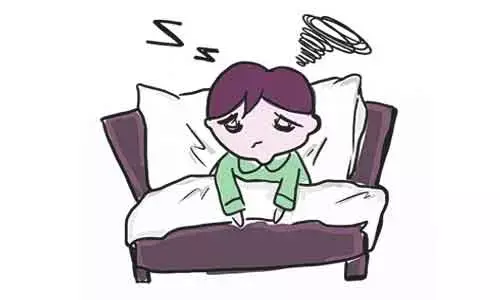- Home
- Medical news & Guidelines
- Anesthesiology
- Cardiology and CTVS
- Critical Care
- Dentistry
- Dermatology
- Diabetes and Endocrinology
- ENT
- Gastroenterology
- Medicine
- Nephrology
- Neurology
- Obstretics-Gynaecology
- Oncology
- Ophthalmology
- Orthopaedics
- Pediatrics-Neonatology
- Psychiatry
- Pulmonology
- Radiology
- Surgery
- Urology
- Laboratory Medicine
- Diet
- Nursing
- Paramedical
- Physiotherapy
- Health news
- Fact Check
- Bone Health Fact Check
- Brain Health Fact Check
- Cancer Related Fact Check
- Child Care Fact Check
- Dental and oral health fact check
- Diabetes and metabolic health fact check
- Diet and Nutrition Fact Check
- Eye and ENT Care Fact Check
- Fitness fact check
- Gut health fact check
- Heart health fact check
- Kidney health fact check
- Medical education fact check
- Men's health fact check
- Respiratory fact check
- Skin and hair care fact check
- Vaccine and Immunization fact check
- Women's health fact check
- AYUSH
- State News
- Andaman and Nicobar Islands
- Andhra Pradesh
- Arunachal Pradesh
- Assam
- Bihar
- Chandigarh
- Chattisgarh
- Dadra and Nagar Haveli
- Daman and Diu
- Delhi
- Goa
- Gujarat
- Haryana
- Himachal Pradesh
- Jammu & Kashmir
- Jharkhand
- Karnataka
- Kerala
- Ladakh
- Lakshadweep
- Madhya Pradesh
- Maharashtra
- Manipur
- Meghalaya
- Mizoram
- Nagaland
- Odisha
- Puducherry
- Punjab
- Rajasthan
- Sikkim
- Tamil Nadu
- Telangana
- Tripura
- Uttar Pradesh
- Uttrakhand
- West Bengal
- Medical Education
- Industry
Sleep problems in early childhood linked to psychosis during Adolescence

Sleep is an essential factor for proper cognitive development and emotional functioning in childhood.
Behavioral sleep problems in childhood are distinctively associated with the onset of psychosis and Borderline Personality Disorder (BPD) in adolescence in different pathways, finds a study published in the journal, JAMA Psychiatry, 2020.
Persistent nightmares in childhood have been prospectively associated with psychosis and borderline personality disorder (BPD) in adolescence. But the extent to which they are interlinked is unexplored. To understand the association researchers at the University of Birmingham, examined the prospective associations between several parent-reported sleep problems in early childhood and psychotic and BPD symptoms at 11 to 13 years of age and the potential mediation of the associations by depression at 10 years of age.
Lead researcher, Dr Isabel Morales-Muñoz, explained: "We know from previous research that persistent nightmares in children have been associated with both psychosis and borderline personality disorder. But nightmares do not tell the whole story – we have found that, in fact, a number of behavioral sleep problems in childhood can point towards these problems in adolescence."
The study conducted on Pregnant women from Avon, United Kingdom, with expected dates of delivery from April 1, 1991, to December 31, 1992. 13,488 participants in the Avon Longitudinal Study of Parents and Children birth cohort were assessed. They were followed up for more than 13 years.
Researchers assessed the Psychotic experiences at 12 to 13 years of age using the Psychosis-Like Symptom Interview and BPD symptoms at 11 to 12 years of using the UK Childhood Interview for DSM-IV Borderline Personality Disorder. Night-time sleep duration, night awakening frequency, bedtime, and regularity of sleep routines were assessed as reported by the parents when the child was 6, 18, and 30 months and 3.5, 4.8, and 5.8 years of age.
The researchers revealed the following key points from the study:
• 7155 participants (3718 girls [52%]) reported on psychotic experiences at 12 to 13 years of age and 6333 (3280 girls [52%]) reported on BPD symptoms at 11 to 12 years of age.
• Higher night awakening frequency at 18 months of age and less regular sleep routines at 6 months, 30 months, and 5.8 years of age were significantly associated with psychotic experiences in adolescence.
• shorter night-time sleep duration and later bedtime at 3.5 years of age were significantly associated with BPD symptoms.
• Results of mediation analysis were consistent with all these associations, except for later bedtime at 3.5 years and BPD in adolescence, which had no association.
• Depression at 10 years of age mediated the associations between frequent night awakenings at 18 months of age and irregular sleep routines at 5.8 years of age with psychosis.
The researchers concluded that some behavioral sleep problems in childhood are distinctively associated with the onset of psychosis and BPD in adolescence. Furthermore, depression at 10 years of age may mediate only the association with psychosis and hence more personalized interventions in psychosis and BPD are needed.
BDS, MDS
Dr.Niharika Harsha B (BDS,MDS) completed her BDS from Govt Dental College, Hyderabad and MDS from Dr.NTR University of health sciences(Now Kaloji Rao University). She has 4 years of private dental practice and worked for 2 years as Consultant Oral Radiologist at a Dental Imaging Centre in Hyderabad. She worked as Research Assistant and scientific writer in the development of Oral Anti cancer screening device with her seniors. She has a deep intriguing wish in writing highly engaging, captivating and informative medical content for a wider audience. She can be contacted at editorial@medicaldialogues.in.
Dr Kamal Kant Kohli-MBBS, DTCD- a chest specialist with more than 30 years of practice and a flair for writing clinical articles, Dr Kamal Kant Kohli joined Medical Dialogues as a Chief Editor of Medical News. Besides writing articles, as an editor, he proofreads and verifies all the medical content published on Medical Dialogues including those coming from journals, studies,medical conferences,guidelines etc. Email: drkohli@medicaldialogues.in. Contact no. 011-43720751


